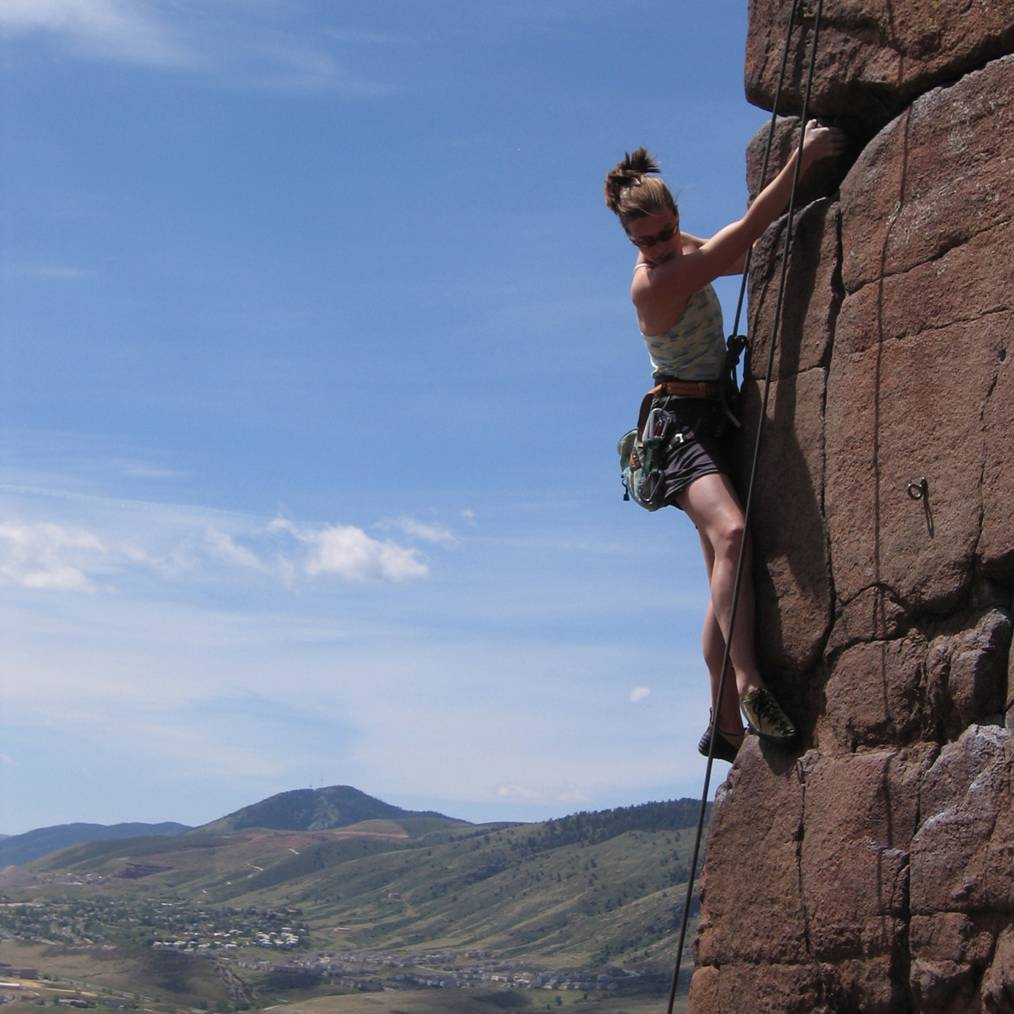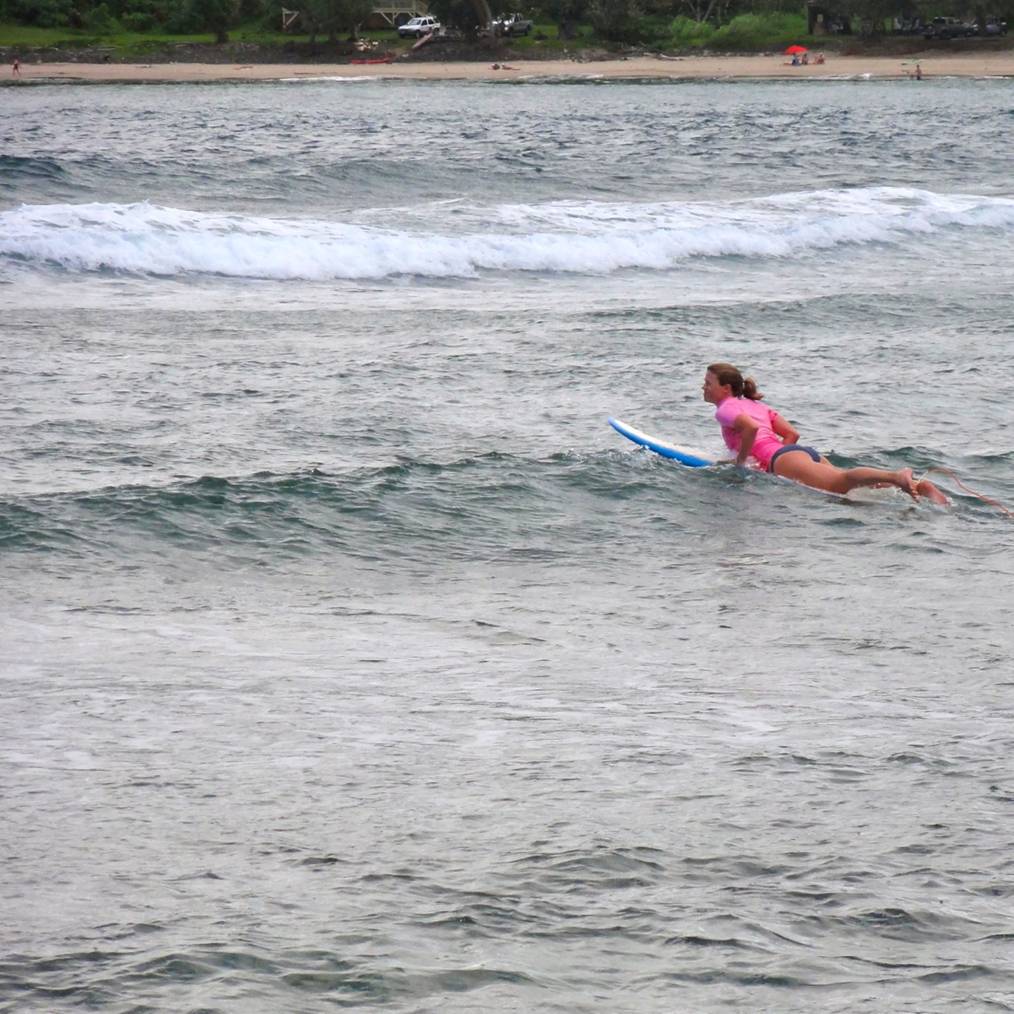We’ve all been there: Ready, excited and pumped to try something new. We know it’s a risk, but we’ve thought it through, weighed the options and potential consequences and finally made the decision to go for it.
It’s been on our mind for awhile, and while it’s scary, we’re feeling confident in our decision. We gear up as our friends cheer us on.
And then… we’re blindsided by a tidal wave of unexpected fear and anxiety just as we make that first move. We’re totally frozen.
We’re suddenly off-kilter and uneasy. This was supposed to be fun, exciting and a little daring, but not so scary that it’s paralyzing you!
And to add to the fear is the frustration, disappointment and anger we start to direct towards ourselves. We weren’t supposed to freeze. We were ready! We did everything we were supposed to do. We want to do it… right?
Our friends look at us expectantly. “You can do it. Just breathe. You’ve got this.”
Sometimes the encouraging words help. Sometimes they make it worse.

It can be incredibly confusing. I know of friends and clients who’ve heard comments like, “But you said you wanted to do it.” “Why’d you get all geared up if you were going to chicken out?” Like you’re not already thinking these thoughts yourself, right? (These are decidedly unhelpful comments, by the way.)
Sometimes, despite our best intentions, the timing just isn’t right. Does that mean it wasn’t worth it? Or that you’ve failed? Or that you’re never going to do it?
It might seem like this is the case—especially in the moment. But they’re not true. There are an infinite number of reasons why we might freeze.
First of all, if this happens to you, don’t judge yourself. Trust that you’ve put in valuable mental time. You’ve thought about this and whether or not you decide to go for it or bail, you’re going to learn something. None of this is in vain.
Taking risks it hard. And by definition, scary. Sometimes the environment or the timing just isn’t there.
Here are a few questions that can help gain some clarity:
- Do you have a voice? Are you able to confidently decide to go for it or bail without judgement or coercion from others? Is this solely your decision? Because if it’s not, you’re not only dealing with your own fears and worries (which is challenging enough!), but you’re taking up valuable energy in anticipating what others are going to say and think.
- Check your fear objectively: Are you really afraid? Or is it that you think you should be afraid? There is a difference between real and perceived risk. Sometimes we’re afraid of something simply because society (or loved ones) think it’s scary, but we’re not actually afraid ourselves.
- Is it the action that you’re resisting, or is there something else going on externally? It could be a storm coming in. Or the sun is setting and you’re not sure you’ll be done in time. There are a variety of outside pressures that can effect our risk tolerance in any given moment.
- Do you trust the people you’re with? Can you confidently bail without ridicule or judgement? Are you afraid they’ll think less of you or not understand your fear? (Hint: You might need a new tribe.)
- How’s your internal environment? The more internal stress you’re under, the less energy you’ll have to put towards risk-taking. This could mean the amount of sleep you got the night before, stress at work or in your personal life, or things like care-taking responsibilities (kids or aging parents). These can absolutely affect our risk tolerance.
- Are you being fair to yourself? Are you asking yourself too much? Taking risks often involve pushing ourselves outside our comfort zone and skill level. But if it’s too much of a leap (think green run to double black diamond), there might be a really good unconscious reason for your resistance: your skills aren’t up to your courage.
- Are your skills for success congruent with your skills for dealing with catastrophe? This can be the case if you’ve got the skills to surf a large wave, but you’re not able to hold your breath under water in a stressful, washing-machine-like situation. If something were to go wrong, you might be in serious trouble.
Decide.
There comes a time when we’re going to have to make the decision. Do it or don’t. There is no grey area.
There is no “right” answer here. There is only the path you choose in that moment. It might seem like it’d be nice to have someone make the decision for us, to tell us that this is what we really want (or don’t want). We want to be relieved of the burden of decision.
If we let that happen, though, we end up giving over our power to someone else. And that doesn’t serve us at all. It might feel good in the short term, but it’s not going to move us forward in the long term.
You have a powerful voice.
Yes, YOU.
Whether or not your decision is to go for it, or back off and perhaps try again another day, it is YOUR decision. And thus YOUR power. And the more we lean into our own power, using our own voice from within us, the more empowered we become—about ourselves, our journey, and ultimately, our life.
Observe your fear objectively. Embrace it. Learn from it. Check in with it. Accept it. And then decide for yourself what your next, most powerful step is going to be.
I’m curious about you. When has fear left you frozen? How did you react? What helped?

——
Amy Christensen is a certified life coach with a passion for adventure and helping women discover and tap into their own adventurous spirits. Based in Boulder, CO, her company, Expand Outdoors, focuses on helping women get outside literally and metaphorically: to step outside their comfort zones, take more risks (the healthy kind) and live a richer, more fulfilling, active, adventurous life. Amy is hosting a FREE video class next Wednesday, May 22 on The Importance of Taking Risks. Learn more and register here.

This post made me think! I don’t scare easily– in fact, it happens very rarely and typically only when a snake is involved 🙂 However, I recently wrote a post on that very topic– I worry that my inability to scare sometimes causes me to do stupid things! Is that feeling an inherent warning system that we should observe or is it really just something to overcome? Just a thought 🙂
Great question! I’m not sure of the answer, but I know there’s a ton of research being done right now on risk, adventure and whether some people have more inherent risky genes. Definitely intriguing!
I think this is a really great little post!
Having participated in a range of activities from bungee jumping and sky diving to SCUBA diving and rock climbing, I have definitely encountered some scary moments along the way.
The one that came to mind while I was reading this was a recent climbing trip with a few friends at Enchanting Rock in Texas. We had arrived in the middle of the day and started our mini-adventure with a hike up to the summit. It was a beautiful day for climbing and we made our way around the back of the rock to find some climbing routes. Once we finally found a suitable face we met some other climbers who were able to provide a little guidance on which routes to try first.
Unfortunately, it has rained a day or two before and the rock face was still a little wet. Plus, if anyone has ever climbed at E-rock they know that the hand holds are more of smears on the rock than actual pockets for holds. My friend went up on lead, but got about half way and encountered a problem she couldn’t overcome. So I went up next. Under dry conditions it would have been a lot more simple, but the patches of wet rock were making it quite a challenge. Finally I was able to overcome that first problem move but once I was over it, realized there were even more difficult moves between myself and the anchors. It was about this time that the wind gusted, directing my attention to a rather omnious rain cloud that was fast approaching. There I was – stuck on a rock, unsure if I could handle finishing the route, but unwilling to abandon the equipment we already had in place. And feeling my heart start to race.
So I took a long deep breath, sent out a pleading prayer, and focused on what was directly in front of me. I took it one small step at a time and with each move, I became a little stronger. Repeating the mantra “give me strength” I found energy within myself to complete the route and come safely back down.
It was an interesting learning experience for me because I realized that you can only find out exactly how strong you are, and exactly how much you can handle, if you are put into a situation that is just outside your comfort zone. Otherwise you’ll never know what you are capable of.
Hey Elizabeth!
Thanks for such a great comment. I’ve climbed at Enchanted Rock before – gorgeous area. Congrats on digging deep and finishing the climb. Your last sentence encapsulates my own thoughts & theories so well. We must get out of our comfort zones in order to learn exactly how strong we are (and we’re a whole lot stronger than we think we are!).